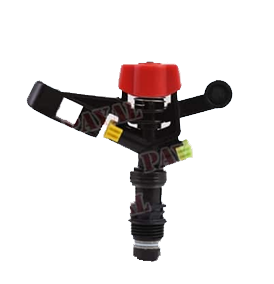Drip Irrigation System Manufacturer in Ahmedabad
The Benefits of Drip Irrigation Systems for Your Garden and Farm
Drip irrigation, also known as trickle or micro-irrigation, is an efficient and sustainable way to water plants. This method delivers water directly to the root zone, minimizing waste and promoting healthier plant growth. In this blog, we will explore the benefits of drip irrigation systems for both gardens and farms, and why they are a smart choice for modern agriculture.
What is Drip Irrigation?
The majority of big drip irrigation systems include filters of some kind to keep tiny waterborne particles from obstructing the small emitter flow route. Nowadays, clogging-reducing new technologies are available. Since potable water is already filtered at the water treatment plant, some residential systems are installed without extra filters. Filters are recommended by almost all manufacturers of drip irrigation systems, and they typically won't honor warranties if this isn't done. In addition to any other filtration system, last line filters placed right before the final delivery pipe are highly advised because of fine particle settlement and unintentional particle insertion into intermediate lines.
Benefits of Drip Irrigation
- Water Efficiency :- Drip irrigation systems use water more efficiently than traditional methods. By delivering water directly to the roots, it minimizes evaporation and runoff, ensuring that plants receive the right amount of moisture.
- Improved Plant Health :- Consistent and precise watering promotes healthier plants. Drip irrigation reduces the stress on plants by maintaining optimal soil moisture levels, leading to better growth and higher yields.
- Weed Control :- Since water is delivered directly to the plant roots, the surrounding soil remains dry, reducing the likelihood of weed growth. This means less time spent weeding and more nutrients available for your plants.
- Soil Erosion Prevention:- Drip irrigation prevents soil erosion by delivering water gently to the soil. This is particularly beneficial for areas with sandy or loose soil, where traditional irrigation can wash away topsoil.
- Cost-Effective:-drip irrigation system can be costly, it saves money in the long run by reducing water usage and lowering maintenance costs. Many farmers and gardeners find that the investment pays off quickly through improved crop yields and reduced water bills.

Applications of Drip Irrigation
Drip irrigation systems are versatile and can be used in various settings, including
- Farms: Ideal for crops like vegetables, fruits, and nuts that require precise watering
- Gardens: Perfect for flower beds, vegetable patches, and ornamental plants.
- Greenhouses: Ensures consistent moisture levels for greenhouse plants.
- Landscape Irrigation: Suitable for trees, shrubs, and landscaped areas.
